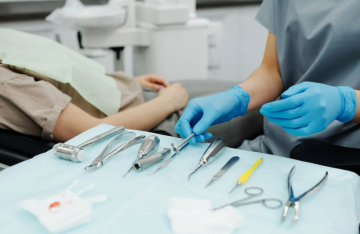Hormone Replacement for Women
When a woman considers hormone replacement therapy, there are multiple factors to consider. There are different types of hormone replacement therapy for women and also alternatives to the hormones. Continue reading for more information on hormone replacement therapy for women below or go to Raidanceantiaging.com for more information.
Why do women use hormone replacement therapy?
Hormone replacement therapy becomes an option when a woman no longer has a menstrual cycle and her body begins making changes to enter menopause. The age women enter menopause varies, but the range is typically 45-55 years old. During this time, women experience a wide array of symptoms that include vaginal dryness, weight gain, irritability, insomnia, osteoporosis, and night sweats. Many women also report sexual discomfort and mood changes during this time. These symptoms are caused by the lack of production of hormones released during the ovulation and menstruation cycles. Hormone replacement therapy has its own risk, respectively, but has been known to alleviate some of the symptoms.
What are the risks of hormone replacement therapy for women?
Women who are prescribed hormone replacement therapy are at an increased risk of medical conditions due to the estrogen and/or progestin hormones. The types of risks include the development of a deep vein thrombosis (DVT), stroke, heart attack, uterine lining growth, and breast cancer. Each woman considering hormone replacement therapy should speak with her provider regarding the pros and cons.
Types of hormone replacement for women
The type of hormone replacement therapy depends on the needs of the woman. If a woman has previously had a hysterectomy, she will be prescribed estrogen only. If a woman still has a uterus, she receives the combination of estrogen and progestin. Systemic hormone replacement therapy will be given to the woman and will be deposited directly into the blood stream. Meanwhile, the local hormones will be received directly by the target organs. The physician will decide if a woman will be given the systemic or oral medication. The woman can apply a patch, use oral tablets, use topical gels or creams, or use a vaginal ring.
Hormone replacement alternatives
The alternatives to hormone replacement therapy for women are natural and include changes a woman can make in her personal life. Wearing looser clothing and sleeping with a fan at night can combat night sweats and allow for better sleep at night. Exercising regularly can help maintain a healthy weight and decrease the risk of heart disease in the menopausal woman. Caffeine and alcohol are known to increase menopausal symptoms, so consumption should be reduced. Foods that should be decreased during this time are fatty foods, spices, sugar, and refined carbohydrates. There are some herbal remedies that have been known to decrease menopausal symptoms. Herbs such as kava and ginseng have been known to decrease menopausal symptoms, however, the Food and Drug Administration (FDA) does not recommend any herbal supplements for women at this time.
For more information on hormone replacement for women, please go to




